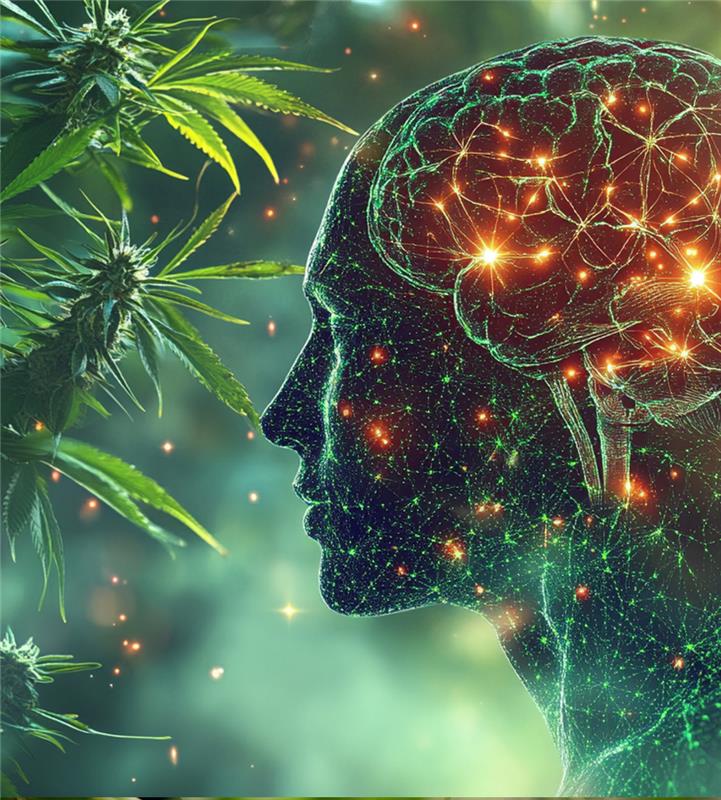Cannabis has been used for centuries for various purposes, from recreational use to medicinal treatments. As societal perceptions evolve, particularly in regions where cannabis is being legalized for medical and recreational use, there is growing interest in understanding its potential therapeutic benefits, especially in relation to mental health. Whether it’s used for managing anxiety, depression, PTSD, or other conditions, cannabis is increasingly being recognized as a potential tool for mental health care. However, as with any substance, its effects are complex and vary based on a range of factors.
In this blog post, we’ll explore the emerging research on cannabis and mental health, discussing both its potential therapeutic benefits and the risks involved. While a cannabis dispensary New York may offer relief for some individuals, it is not without its complications. Understanding the nuances of cannabis use in the context of mental health is crucial for both patients and healthcare providers.
Cannabis and Its Chemical Components
To fully understand the role cannabis plays in mental health, it’s important to know what makes up this complex plant. Cannabis contains over 100 active compounds known as cannabinoids, but the two most well-known are tetrahydrocannabinol (THC) and cannabidiol (CBD).
- THC: This is the primary psychoactive compound in cannabis, responsible for the “high” that users experience. It binds to cannabinoid receptors in the brain, influencing mood, memory, and cognition.
- CBD: Unlike THC, CBD does not produce a “high.” It is non-psychoactive and has been shown to have potential therapeutic benefits for anxiety, depression, and other mental health conditions. It’s often considered to have calming effects without the intoxicating impact of THC.
Both THC and CBD, along with other minor cannabinoids and terpenes (the aromatic compounds in cannabis), work together to produce what is called the “entourage effect,” where the different compounds may enhance or moderate the effects of each other.
The Potential Benefits of Cannabis for Mental Health
Managing Anxiety and Stress
Cannabis, particularly CBD, has been studied for its potential to alleviate symptoms of anxiety. Research indicates that CBD may have anxiolytic (anxiety-reducing) properties, with some studies suggesting that it can reduce the physiological symptoms of anxiety, such as rapid heart rate, while also promoting a sense of calmness.
A study published in Neurotherapeutics found that CBD appeared to reduce anxiety in both animal models and human studies. In particular, it was noted that CBD might help those with social anxiety disorder and general anxiety disorder. While THC can sometimes exacerbate anxiety in certain individuals, particularly in higher doses, CBD is thought to counteract this effect and help balance THC’s impact.
Alleviating Symptoms of Depression
Cannabis may also have potential as an antidepressant, particularly through its impact on the endocannabinoid system (ECS), which regulates mood, sleep, and emotional responses. Research on this subject is still in its early stages, but some studies suggest that cannabis may improve mood in people with depression, though its efficacy and safety as a long-term treatment remain uncertain.
A small study published in The Journal of Affective Disorders found that CBD was associated with an improvement in symptoms of depression, especially when combined with conventional treatments. However, there is a lack of large-scale studies to definitively conclude how cannabis may play a role in depression treatment.
Reducing PTSD Symptoms
Post-traumatic stress disorder (PTSD) is another mental health condition where cannabis is being explored as a potential therapeutic option. THC and CBD have both shown promise in reducing some of the distressing symptoms of PTSD, including flashbacks, nightmares, and hypervigilance.
A 2019 study in The Journal of Psychoactive Drugs found that cannabis use helped reduce PTSD symptoms in veterans and individuals suffering from trauma. THC was particularly effective at reducing nightmares, while CBD appeared to decrease overall anxiety levels and help with sleep. However, it’s important to note that cannabis is not a cure for PTSD and should be considered as part of a broader therapeutic approach.
Improving Sleep Quality
Insomnia and other sleep disorders are common in individuals dealing with mental health conditions like anxiety, depression, and PTSD. Cannabis, particularly CBD, has been studied for its potential to improve sleep by reducing anxiety and promoting relaxation.
A study in the Journal of Clinical Pharmacology showed that CBD improved sleep in individuals with chronic pain, which is often linked to mental health disorders like anxiety and depression. THC is also known to have sedative properties, which can help people fall asleep more quickly, although it may affect the quality of sleep in the long term.
Risks and Concerns: What Research is Saying
While cannabis may hold promise as a mental health treatment, it is not without its risks. The relationship between cannabis and mental health is complex, and it is important to consider both the potential benefits and drawbacks.
Psychosis and Schizophrenia
One of the most significant risks associated with cannabis use, particularly THC, is its potential to trigger or exacerbate psychosis, especially in individuals predisposed to mental health disorders like schizophrenia. Research has shown that high doses of THC can increase the risk of acute psychotic episodes in vulnerable individuals.
A large study published in The Lancet Psychiatry found a strong link between frequent cannabis use (especially cannabis with high THC content) and the development of psychotic disorders, particularly in those with a genetic predisposition to conditions like schizophrenia. It’s important to note that the risk seems to increase with the frequency and potency of cannabis use, suggesting that moderation and cautious use are key.
Cannabis-Induced Anxiety
While cannabis can reduce anxiety for some individuals, it can have the opposite effect in others. High doses of THC can lead to feelings of paranoia, racing thoughts, and increased anxiety, particularly in people who are inexperienced with recreational weed dispensary tarrytown or have a predisposition to anxiety disorders. For some, cannabis use may exacerbate the symptoms it is meant to treat.
A review published in Current Psychiatry Reports suggests that while CBD can alleviate anxiety, THC may induce anxiety, especially in high doses. The overall effects of cannabis on anxiety depend on individual tolerance, the strain of cannabis, and the dosage.
Dependency and Withdrawal
Cannabis use can lead to dependence in some individuals, especially those who use it frequently. While cannabis dependency is generally considered less severe than addiction to substances like alcohol or opioids, it still presents challenges. Symptoms of cannabis withdrawal include irritability, insomnia, loss of appetite, and mood swings.
A study in JAMA Psychiatry found that about 9% of cannabis users develop dependence, with higher rates among those who start using cannabis at an early age or use it frequently. The risk of dependency is an important consideration for anyone using cannabis as a form of self-medication for mental health issues.
Conclusion
Cannabis offers potential benefits for mental health, especially CBD for anxiety and depression, and THC for sleep and PTSD. However, it also carries risks, including psychosis, addiction, and cognitive impairment, particularly for vulnerable individuals. As research evolves, it’s crucial to approach cannabis use cautiously, especially when considering it for mental health treatment. Consulting a healthcare provider is advised, especially for those with existing mental health conditions. Future research will help clarify cannabis’s role in mental health care, but until then, informed and cautious use is essential.

